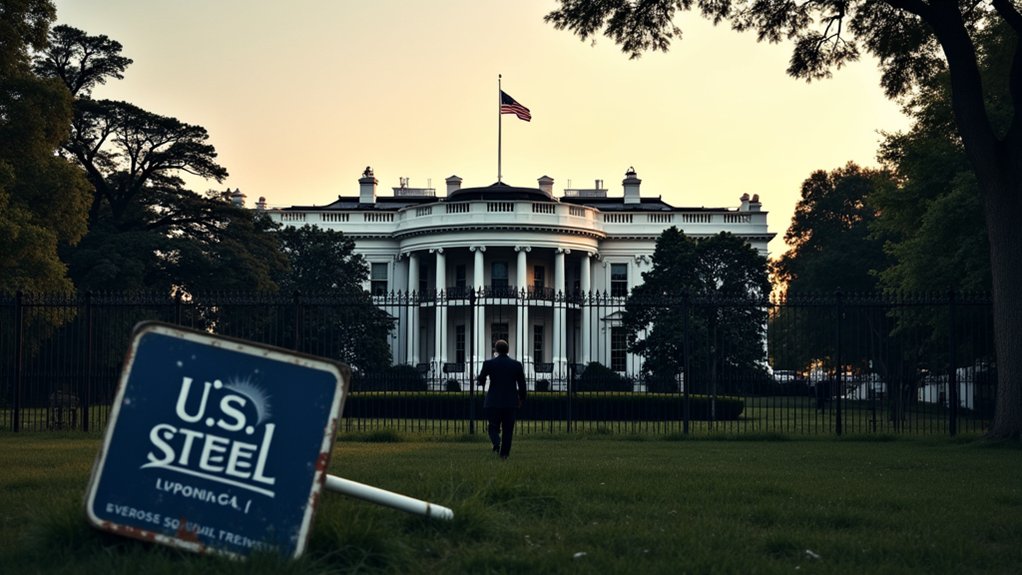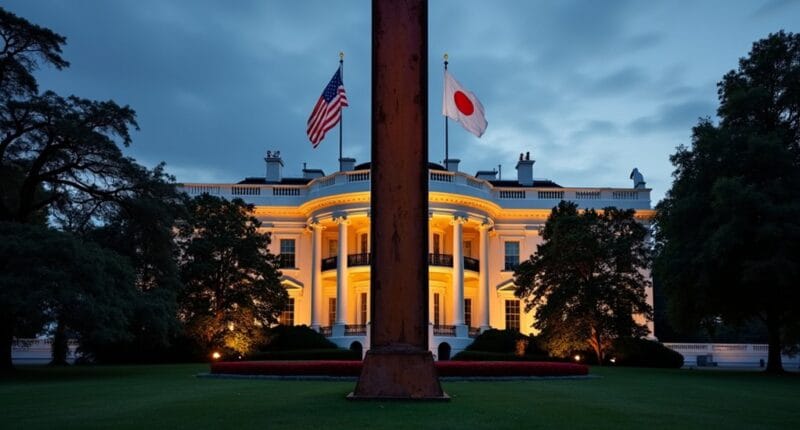The White House just pulled a power move on U.S. Steel‘s $14.9 billion sale to Japan’s Nippon Steel. Through a “golden share” arrangement, the government gets unprecedented oversight of the iconic American company’s operations. The deal creates the world’s second-largest steelmaker, with Nippon promising $11 billion in new investments and 100,000 American jobs. While unions aren’t thrilled, this marriage of steel giants comes with some interesting strings attached.

As the White House flexes its muscle over U.S. Steel’s foreign ownership, a new executive order grants unprecedented government control through a “golden share” arrangement with Nippon Steel. The $14.9 billion deal that makes America’s iconic steel producer Japanese-owned comes with strings attached – lots of them.
The Trump administration’s approval overturned President Biden’s earlier block of the acquisition, marking a dramatic shift in executive policy. Now, U.S. government representatives get to stick their noses into governance decisions, guaranteeing national security interests aren’t compromised. Because nothing says “America First” quite like Japanese ownership with American oversight. The United Steelworkers union has vocally opposed Trump’s support for the foreign acquisition. The strategic partnership builds upon years of previous collaboration between the two steel giants.
Nippon Steel isn’t just getting U.S. Steel’s assets – they’re inheriting a stack of commitments. The Japanese giant pledged $11 billion in new investments through 2028, promising to modernize facilities and create jobs. They’re also stuck with current labor agreements with the United Steelworkers union. No wiggle room there.
The merger creates the world’s second-largest steel manufacturer, with U.S. Steel keeping its Pittsburgh headquarters and name. At least something stays American. The deal promises to support and create more than 100,000 American jobs, though union leaders and politicians are watching like hawks to guarantee these promises aren’t empty.
After steering through Department of Justice antitrust review and CFIUS scrutiny, the deal faced a rollercoaster of political drama. Bipartisan lawmakers threw fits, unions raised red flags, and the Biden administration initially slammed the door shut. Then Trump swooped in with a different vision.
The National Security Agreement gives the government real teeth in monitoring the merger’s aftermath. It’s like having a permanent government chaperone at the corporate prom.
While U.S. Steel received other domestic offers after Biden’s initial block, Nippon Steel’s bid prevailed – with a heavy dose of federal oversight attached. The message is clear: foreign ownership is fine, as long as Uncle Sam gets to backseat drive.





